The Confederation of Co-operative Housing (CCH) held its annual conference in Kenilworth, near Warwick, last month with a focus on the sustainable development goals.
With the world rapidly falling behind in its race to meet climate targets, one of the crucial bars to progress in the UK is its draughty housing stock. This has put retrofitting high on the agenda and housing co-ops are looking for ways to bring their homes up to spec.The goal here is to cut energy waste, and also help householders save on the spiralling energy bills that are a key driver in the cost of living crisis.
A session on retrofitting was opened by James Neward, CCH’s retrofit associate – a chartered architectural technologist with expertise in low carbon architecture, fabric energy performance, bio-based materials and community led projects.
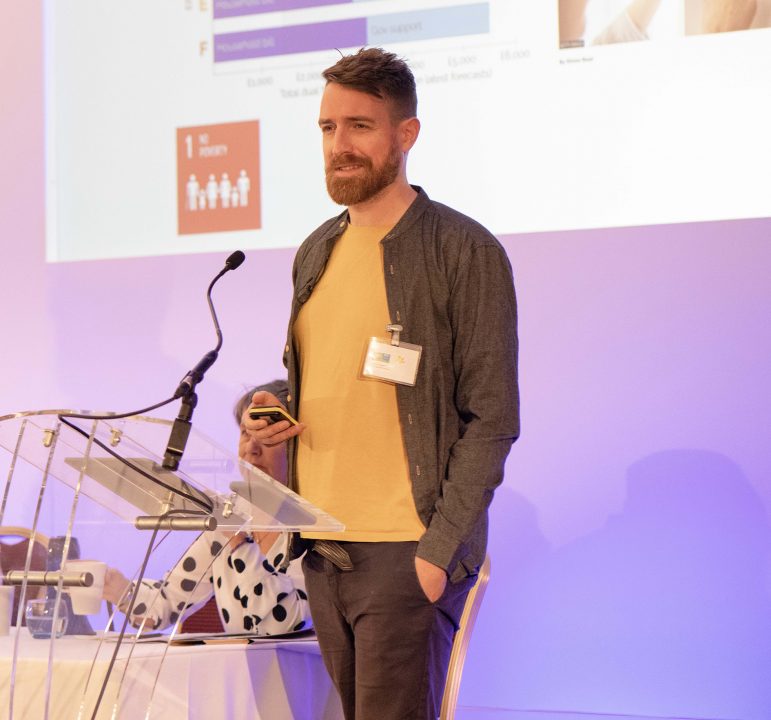
He said there is a lot of tech available to cut domestic carbon footprints: rooftop solar, mechanical ventilation heat recovery, and heat pumps, but warned this can be a distraction. “Not every house is suitable for a heat pump,” he said. “We can’t use them in poorly insulated, draughty houses.”
That makes insulation a key factor – in wall cavities, on building exteriors, in lofts and roofs and under floors, alongside air-tighteners to eliminate draught and the replacement or refurbishment of windows.
There’s no one-size-fits-all answer, given the varied nature of the UK’s housing stock; for instance, exterior insulation isn’t permitted on listed buildings. Cost is also a challenge but there are funds to apply to, notably the Social Housing Decarbonisation Fund (SHDF).
Neward said CCH is working with member co-ops to find out what measures are appropriate before putting together a consortium bid. It is looking for £1.3m to fund its project, and hopes the process will create a template that can then be used to apply for other funds.
Imtiaz Vohra, who manages Ross Walk and Maynard housing co-ops in Leicester, said he was working with old building stock but successful upgrades have been done using internal insulation, and external insulation that uses a brick effect to maintain the appearance of the property.
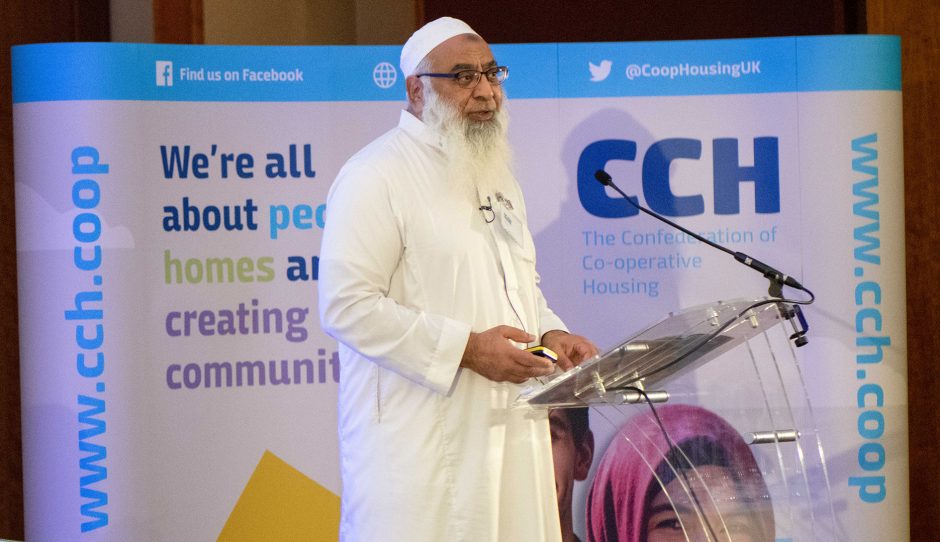
Working with the local authority, the co-ops secured just under £1m from the SHDF to upgrade 52 dwellings. When the first property is done the co-ops will be on a learning curve, rolling out the lessons across the other properties.
“We had to demonstrate links with the local authority,” he said. “We needed it to act as consortium leader, to include its own housing stock.”
Martyn Holmes, a resident and co-founder of Bunker Housing Co-op in Brighton, described how he came together with other low income people in 2014 to launch a self-build project, which moved in its first families in 2020; 11 more sustainable homes are now in pipeline, using sustainable building materials and other environmentally friendly tech such as low water usage systems.
The houses come in flatplack form, manufactured in Latvia from sustainable cross-laminated timber, packed with as much insulation as possible, using triple glazed windows. These sustainable methods were enough to get the group a reduction on its mortgage from Ecology Building Society.
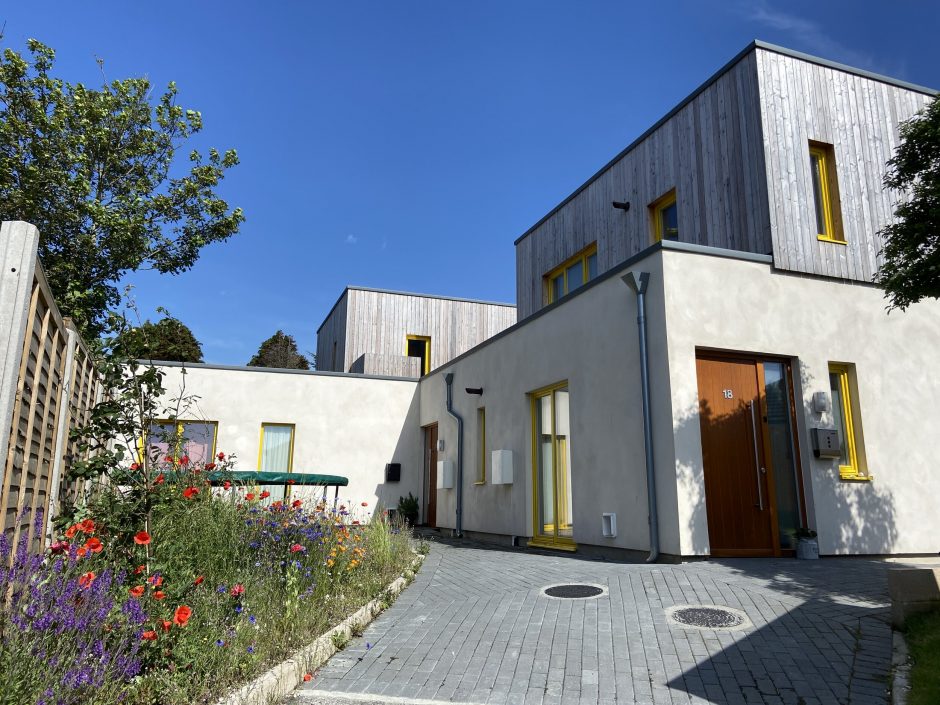
A local energy services co-op was brought in to instal more eco-friendly tech, and there are food growing areas and wildlife boxes to promote biodiversity in the area.
“We’re showing that co-ops can create high quality sustainable development and sustainable communities,” he said. “Sustainability isn’t only about being good for the environment but also for the residents and the surrounding community.
Co-operation is political, added Holmes. “Co-ops do have a vital role to play in both the field of housing and development, and in civic life more widely … It’s steering towards the common good … rehumanising development … and taking back our right to the city.”
There are other SDGs relevant to housing co-ops; Blase Lambert, CEO of CCH, cited No.4, lifelong learning: he said the sector offers members the chance to learn about the co-op movement and its principles, and can give access education, vocational training and personal development.
“I go to a lot of co-ops,” he said. “Some are fantastic but there are also some that have problems – they were set up 40 years ago and the guiding principle has got lost somewhere. New people have moved in off a council waiting list, they’re not attending meetings, they’re not committed because they’ve not been educated by the co-op.”
The use of inductions and training can improve this and also make a co-op run better, with more efficient meetings and better governance. They also aid personal development: Lambert shared his own journey, where her transferred the skills he picked up on the co-op board to become a chair of governors at a local primary school.
To help push this along, the CCH has a training programme with 140 accredited providers working across a network covering the whole country.
Later sessions turned to other SDGs, including No.8, decent work. Lambert said housing co-ops procure services in four ways: the use of unpaid member volunteers; employing staff; buying services from other companies; and hiring contractors.
He said co-ops should follow their principles and give their employees the best possible terms and conditions but this has not always happened. “Co-ops should not be a race to the bottom,” he insisted, adding that care should also be taken to study the employment track record of companies when buying in services, and to ensure that the use of contractors meets diversity criteria.
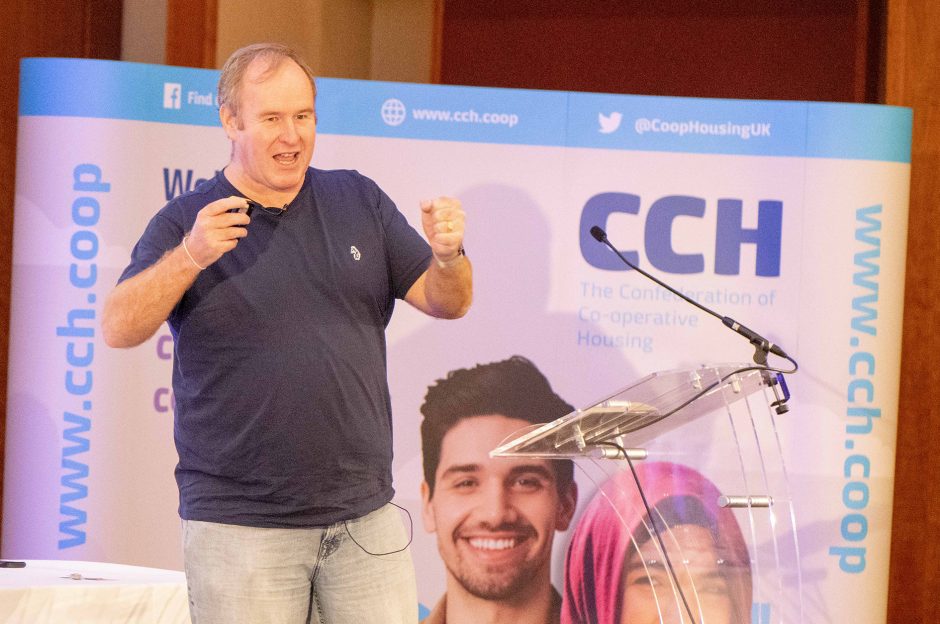
SDG 11 – safe, inclusive, sustainable communities – is clearly also pertinent to the housing sector and Carl Taylor from Redditch Co-operative Homes shared his co-op’s efforts.
With 1,000 homes, the co-op is the biggest housing provider in the West Midlands town, apart from the local authority, and “community is in our DNA”. It has been working with the council on a large scale regeneration of the area, which has seen the co-op buy up land to build 237 homes.
As with Bunker, the co-op opted for sustainable flatplack timber homes; the first were sourced fro Norway but a factory has now been opened in Walsall to product the rest, creating more jobs for the region; these will be the world’s first virtually plastic-free houses.
Looking at SDG 7, sustainable energy for all, Omar Al-Amin presented the work of Repowering London which is trying to reimagine energy as “a basic human need”.
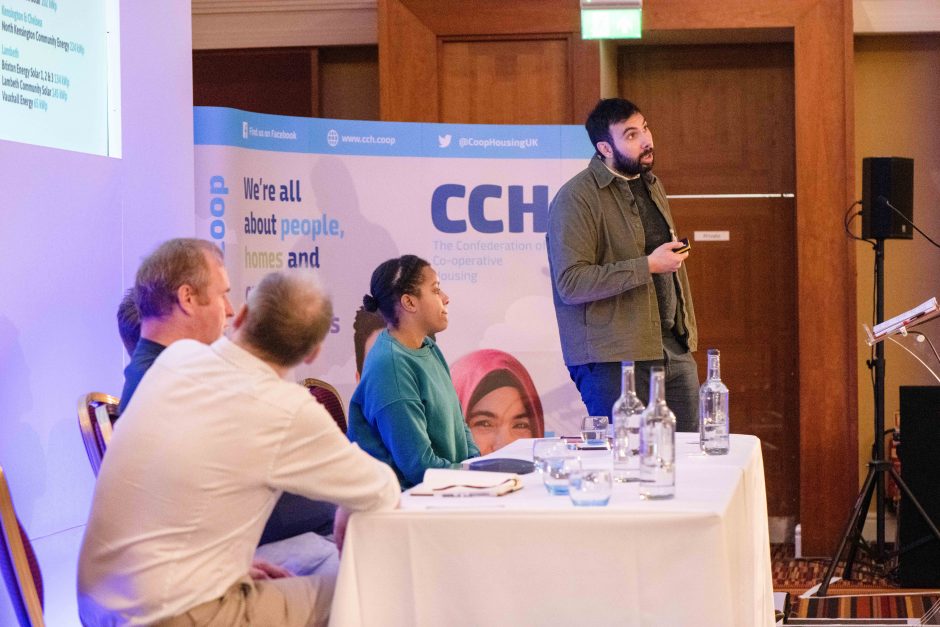
Repowering London acts as an enabler, he said, using community share issues to create community energy companies. It has set up six energy co-ops across four London boroughs, which over the next five years will generate 5mw of solar energy. It will also be looking at community-led retrofitting, energy storage and smart local energy systems.
Diversity is also a crucial factor, taking in SDG 10, reduced inequalities, and CCH is launching a research project with the University of Liverpool into the involvement of BAME communities and the housing co-op movement.
Introducing the project during a side session, Henri Baptiste from Pathway Housing Solutions in Nottingham and Claude Hendrickson, from Frontline Community Self Build HA in Leeds, said community-led housing has not been extensively taken up by BAME communities.
The research will identify challenges and opportunities for engagement, and find ways for information about community led housing to filter past its core group of “educated middle class white people”.
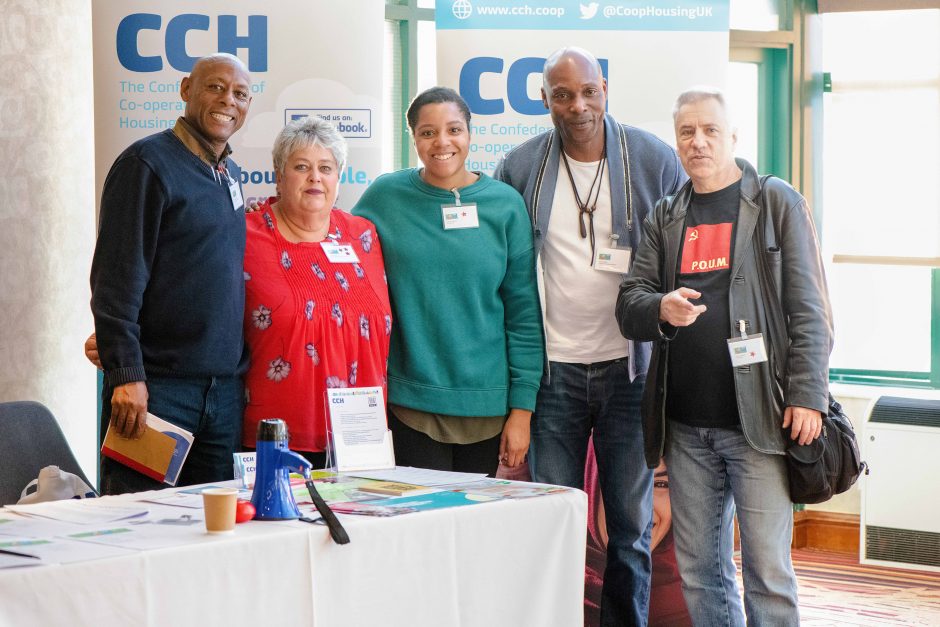
“The key factor is BAME communities don’t know about it,” said Baptiste, “So when asked about it in surveys they don’t engage.”
There is a bitter irony here, with Henrickson pointing out that the community land trust movement was born out of the US Civil Rights movement in the 1960s; while culturally, for people Africa, Asia and the Caribbean, “being involved in the construction of your house is the norm“.
The project will also look at other underserved minorities such as LGBT and disabled people, he added.
“The findings of this need to resonate across the sector,” said Baptiste, “to social lenders, government depts … community led housing offers an alternative to people on the edges who are marginalised and more impacted by economic hardships.”